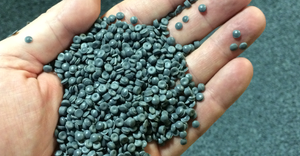Garbage's 40th Birthday
UNLESS IT WAS YOUR BIRTHDAY or anniversary, Oct. 20 was probably just another day for you, halfway between Columbus Day and Halloween. But if you are a garbage maven, you celebrated that day. After all, it was the 40th anniversary of the Solid Waste and Disposal Act (SWDA), the first federal trash law.
SWDA was a very modest law that created an Office of Solid Waste in the U.S. Public Health Service. Congress also set aside some money for research and development projects and technical assistance to communities.
The most important thing about the law was what it said about garbage. At a time when the population and the economy were growing rapidly and suburbanization was roaring through the American countryside, we realized we had to become more careful about how we handled our trash. We could no longer afford to burn our garbage in open dumps or in smoking incinerators. SWDA made it clear that taking care of trash is first and foremost a public health necessity.
Interestingly, October of this year also marked the 40th anniversary of the first wide area network. Two computers — one in Massachusetts and the other in California — were linked together to exchange data via a telephone line. In many ways, that was the beginning of the Internet.
Of course, the Net — and how we communicate — has changed far more dramatically than how we manage our trash. That first computer hookup took place on a 1,200 bytes per second (bps) line, a speed so slow that most of us don't know how slow it is. Forty years ago, we didn't have the Web, e-mail, PCs, video games or spam (okay, we did have Spam back then). I don't know if what we communicate is any better now than then, but we sure do it faster.
Our garbage has changed also. We make a lot more trash now because there are more of us, and we have more money to buy things. Plastics have replaced many glass, metal and paper products. Suburbanization led to more trees, bigger lawns and more yard waste. We are using less paper as the Net and the Web change how we read.
How we manage our trash has changed too. SWDA was followed by other laws. When the EPA was created in 1970, it took over the solid waste office. Over time, EPA was given responsibility for hazardous waste, recycling, resource conservation and landfills. And then, in 1987, the garbage barge set sail, and curbside recycling programs exploded across the nation.
We also no longer have open-burning dumps. The old belching incinerators have been replaced by higher-tech waste-to-energy systems. And, of course, burn barrels are a thing of the past. Oops — I'm wrong on that one.
We still use trucks to collect garbage, but those trucks have changed as automated and semi-automated collection have replaced manual collection in many towns.
Recycling probably has seen the biggest changes. Paper drives and mom and pop scrap yards that followed the laws of supply and demand have been replaced by mandatory multimaterial programs that follow their own logic.
We'll see more changes over the next 40 years. The changes in the Net, or whatever we call it in forty years, will be more dramatic, but garbage — and how we manage it — will still be with us and will still need to be managed carefully and safely.
Opinions in this column do not necessarily reflect those of the National Solid Wastes Management Association or the EIA. E-mail the author at: [email protected].
The columnist is state programs director for the Environmental Industry Associations, Washington, D.C.
About the Author
You May Also Like




